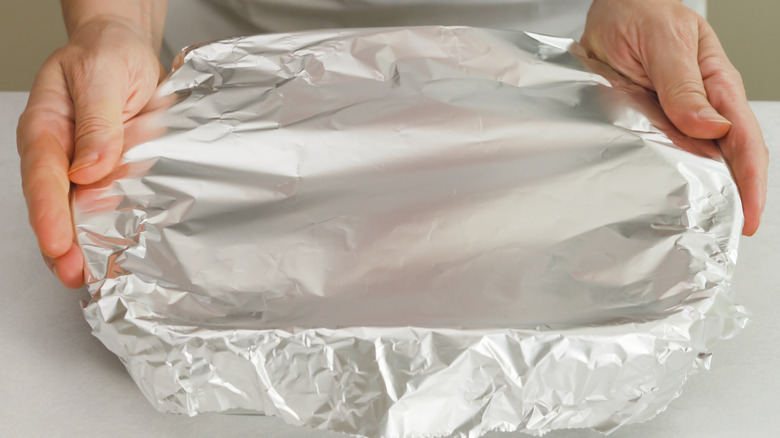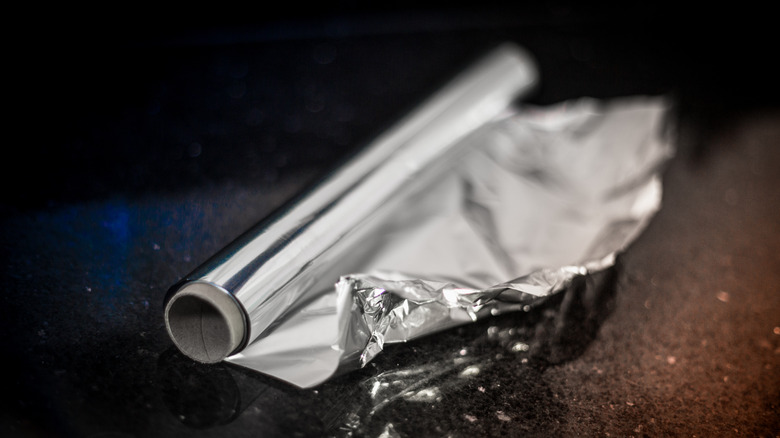Are Tin Foil And Aluminum Foil The Same Thing?
This may be your first time hearing this news, so make sure you're sitting down and not holding onto anything that can't be dropped. Tin foil and aluminum foil are actually different things. If you need a moment it's completely understandable. Take as much time as you need.
Although the names are often used interchangeably, they are, in fact, technically different things. In hindsight it's quite obvious (their compositions are different, a fact that is literally evident in the name), but to be fair, the two foils do pretty much the same things. Before the 1900's, tin foil ruled the lands and was used as an insulator along with a variety of other industrial purposes. It was so popular that eventually it was sold commercially to be used in homes, per Taste of Home. It was conveniently heat resistant, heat conductive, and could be molded into any shape you would like. The versatility and convenience made tin foil both a household staple and a vernacular one as well.
From tin to aluminum
During the early 1900's aluminum burst onto the foil scene and blew the competition away, per Lacademie. Although aluminum and tin as foils feel and work very similarly, there were some significant differences that made aluminum more viable in the marketplace and in the kitchen.
Production-wise, aluminum is far cheaper than tin and is thus easier to manufacture reports Lacademie. You can make more aluminum foil for less and tin just could not compete with aluminum's more competitive pricing. Tin also was known for leaving a sort of "tinny" metal taste on the foods that it was adjacent to, which was a significant downside to using this type of foil. Aluminum left no such flavor residue due to that it is non-corrosive (per LifeSavvy) thus proving itself to be the superior foil type.
By the 1920s, tin foil became relatively obsolete, but its name had become so synonymous with the metal foil (per Lacademie). Because its appearance was so indistinguishable from that of aluminum foil, the name must have stubbornly stuck through the ages.

